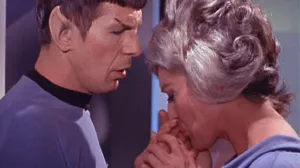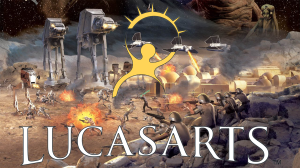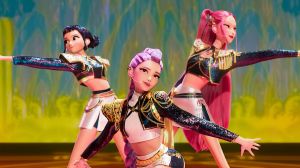
When I was a kid dreaming of becoming a writer, an author whose name has long since slipped from my memory told me two things that have stuck in my head ever since. The first is that stories are how we order the world, helping us to make sense of the random chaos that makes up the human experience. The second is that the best stories are those that challenge our perspective on the chaos that we think we already have ordered. It goes far beyond their ability to simply make us think and understand; it’s the concept that good stories can reshape how we see the entire world, offering us more honesty and more humanity than what we had to start. Saif A. Ahmed and Fabiana Mascolo’s Yasmeen #1 does exactly that.
Videos by ComicBook.com
I am generally disinclined to declare anything as “perfect,” but Yasmeen #1 comes close to the mark. The story follows Yasmeen, a girl who survives the rise of ISIS and makes it to the United States where she is reunited with her family, all of whom are now refugees in a country so very foreign to them. The story is told both in the present—which in this case is 2016—and two years prior in 2014. The bulk of the story in this issue centers on the past, specifically showing how quickly Yasmeen’s world fell apart when ISIS invaded Mosul, Iraq. One moment, her family is thriving and moving into their dream home. The next, a terrorist group is destroying their world with Yasmeen’s family specifically targeted because her father is Shiite, and her mother is Sunni. Readers learn that while Yasmeen’s mother, father, and brother manage to escape, Yasmeen, who was shopping with her uncle, does not. He is killed right in front of her and she is taken captive as a slave. The story doesn’t need to describe the hell this young girl has just entered; you can feel it come up off the page.
Juxtaposed with this is Yasmeen’s reunion with her parents in 2016 and it’s clear that what she’s endured has changed her, but her family is also struggling. Not only did ISIS remove them from their home and shatter their family in unspeakable ways, but their entire lives have changed culturally and economically, as well. Yasmeen’s mother is still adjusting to no longer being as wealthy as they were while Yasmeen’s father is attempting to assimilate into American culture as much as possible, something that creates further tension. The issue itself doesn’t provide much in terms of hearing from Yasmeen herself, but it doesn’t need to. Her story is clear, loud, and heartbreaking as told through both the stories of her family on that fateful day and in the comic’s art. Fabiana Mascolo does an incredible job of creating rich, dynamic, and authentic realities with a minimalistic style. You can see the soul-deep ache in Yasmeen’s face and the hopeful optimism her father still carries in spite of tragedy.
The writing paired with the art alone makes for a powerful and expertly-crafted debut, but what takes Yasmeen #1 that much further to being something nearly perfect is that this is a story that challenges the reader—especially Western non-Muslim readers—to see this Iraqi family as they would their own. It is very easy to paint the conflict in the Middle East with a broad (and often racist or biased) brush. Yasmeen rejects that and instead gives the reader characters who may not look like them but who possess the same hopes, dreams, and familial love they share. Ahmed’s story challenges the reader to see Yasmeen—and by extension every other young woman like her—as complete people. It’s neither political nor preachy—it’s simply human.
Stories help us order the world and the best ones challenge our perspectives on everything we think we know. Yasmeen #1 does both of those things, inviting us to see a world we only know from half-accurate, sound bite-ready news, a world we can easily wave a way as “not ours,” and it forces us to see that there is more to every story and every event than we allow ourselves to see and hear. It’s a comic that serves as both a window and a mirror, and we cannot look away.
Published by Scout Comics
On July 21, 2020
Written by Saif A. Ahmed
Art by Fabiana Mascolo








